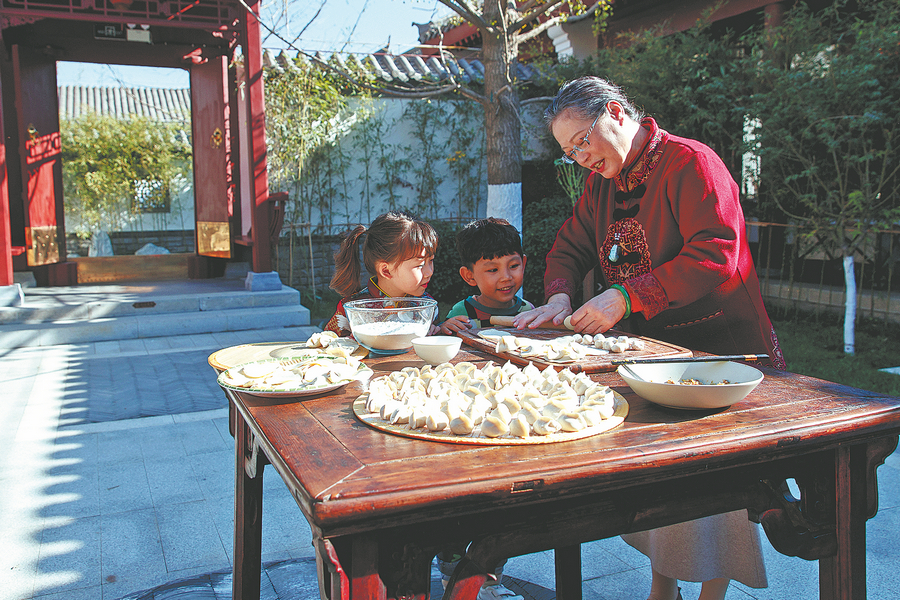A celebration for a time of promise
Spring Festival enjoys a growing global profile with recent UNESCO heritage recognition. Zhao Xu explores the cultural roots of this age-old tradition and how it has evolved over time.


In his brief yet evocative memory piece, The Spring Festival in Beijing, Lao She (Shu Qingchun, 1899-1966), writer and contemporary of Ba Jin, describes the making of pickled garlic, which takes on a vibrant hue "as green as emerald jade". This garlic, traditionally called la ba suan, is named after la ba, the eighth day of the 12th month in the traditional Chinese calendar, while suan simply means garlic.
The ancient custom dictates that the intense preparations for the New Year begin on the eighth day of the 12th month. This marks the start of the final rush to ready the household for the celebration, including housecleaning, stockpiling food, and making new clothes.
Long before the era of burgeoning prosperity, Chinese New Year was a celebration of the truly "new". It was the one time of year when people received new clothing, often lovingly handmade by the women of the family.
For children, the thrill of wearing something fresh and unspoiled brought pure joy.
In a world where newness was a rarity, the festival magnified its allure — new clothes, new beginnings and a renewed sense of beauty that quietly shone.
On the 23rd day of the 12th month in the Chinese calendar, the Kitchen God — who, according to legend, oversees the household — is sent to heaven to report to the all-powerful Jade Emperor on the family's behavior over the past year.
To bid him farewell, the family typically offers food including sticky sweets like malt sugar, to ensure his lips remain sealed and no misdeed, if any, is revealed. This send-off is followed by a spirited welcome-back on New Year's Eve amid sounds of bursting firecrackers.
Also on this eve, Tusu wine, as mentioned in Wang's poem, is poured in certain parts of China. In keeping with tradition, this fermented herbal drink, believed to have a nourishing and detoxifying effect, is first sipped by the younger members of the family, marking the addition of another year to their lives. The older members drink next, acknowledging a year slipping quietly away.
In this ritual, the wine becomes more than a drink — it is a bittersweet reflection on the cyclical nature of time, where growth and loss intertwine.
























